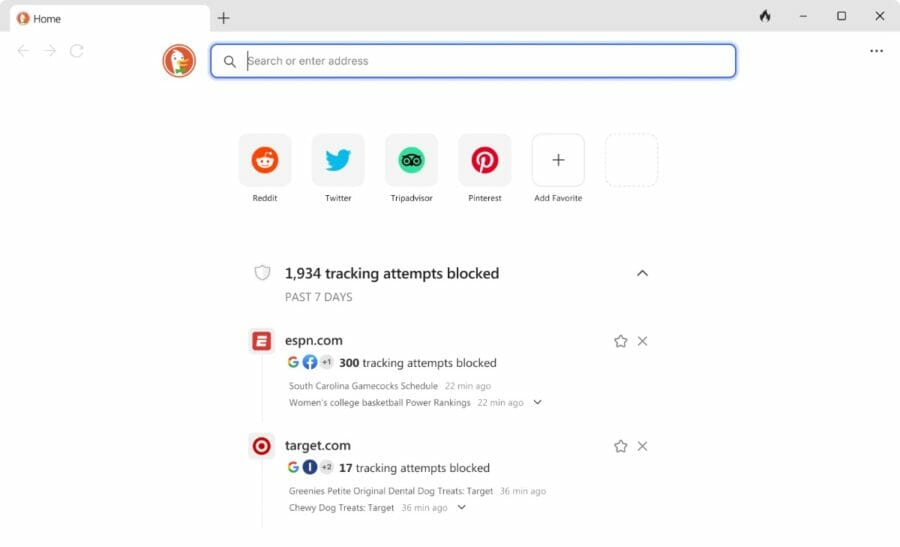DuckDuckGo, the search engine known for its focus on privacy, has launched a public beta version of the browser for Windows. By default, the program offers a range of privacy protections, as well as DuckDuckGo’s suite of web browsing tools, reports ArsTechnica.
A year after testing closed beta versions of its Mac browser, DuckDuckGo is bringing many of the same features to a wider audience. The DuckDuckGo browser for Windows, like its Mac counterpart, uses the “the underlying operating system rendering API instead of its own engine. According to the DuckDuckGo blog post, this involves “a Windows WebView2 call that utilizes the Blink rendering engine underneath.” So the browser identifies itself as Microsoft Edge on most sites.
However, the DuckDuckGo browser comes with some interesting features:
- Duck Player, which shows (most) YouTube videos “without privacy-invading ads”;
- Tracker blocking that DDG cites as “above and beyond” other browsers, including third-party tracker loading;
- Enforced encryption: this feature ensures secure web browsing;
- Fire Button: this button instantly closes all tabs and clears website data;
- Manage pop-ups and cookies: this feature automatically selects a private browsing option and hides pop-ups;
- Email protection: provides an opportunity to use a private duck.com address in web forms.
DuckDuckGo claims that its browser uses “about 60% less data than Chrome” thanks to its pre-blocking of trackers. But because it’s built on Windows’ own rendering engine, its security depends heavily on updates to Microsoft’s operating system.
Also, unlike most popular browsers, DuckDuckGo does not yet support extensions. The company plans to add this feature “in the future” and suggests that its existing tools, such as password management, ad blocking tools, and Duck Player, already cover the two most common ways extensions are used.
Many other things—tab pinning, HTML bookmark import, and password/bookmark syncing—should be “also coming soon,” writes Product Director Peter Dolanjski.
He also stated that DuckDuckGo intends to open-source its browser, as it has done with some apps and extensions. He noted that the company’s engineers spent a significant amount of time addressing privacy issues specific to WebView2, such as ensuring that crash reports were not sent to Microsoft.
It is worth mentioning that last year DuckDuckGo got into a scandal due to its cooperation with Microsoft. As it turned out, the companies had an agreement between them, according to which the DuckDuckGo web browser allowed Microsoft to use trackers on third-party sites. Then DuckDuckGo promised to remove this condition from the contract with Microsoft and to be more transparent in the description of its own products.



Loading comments …